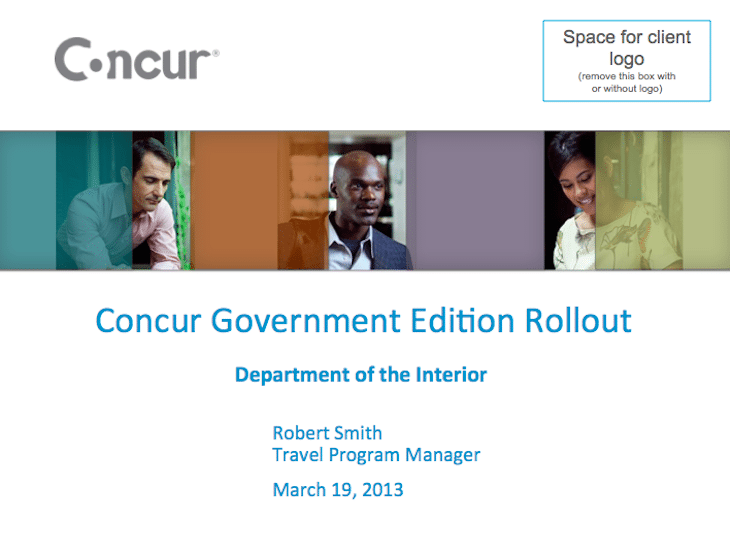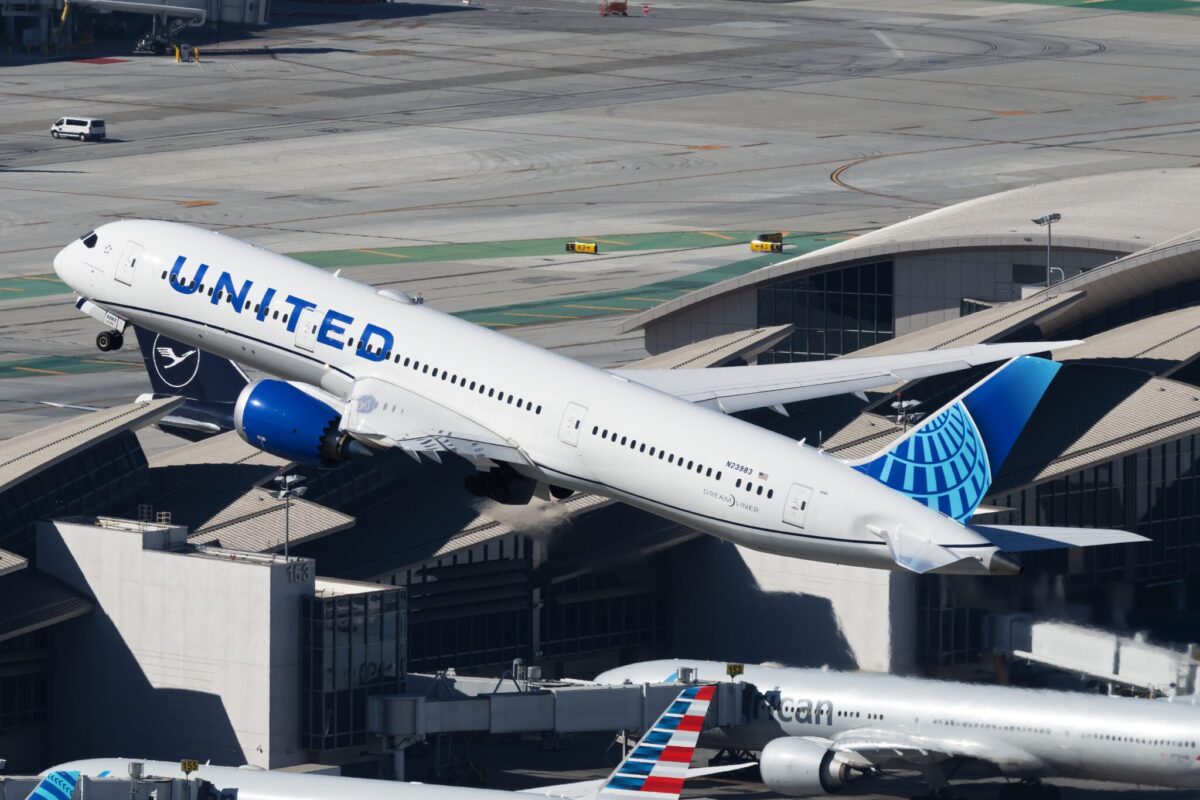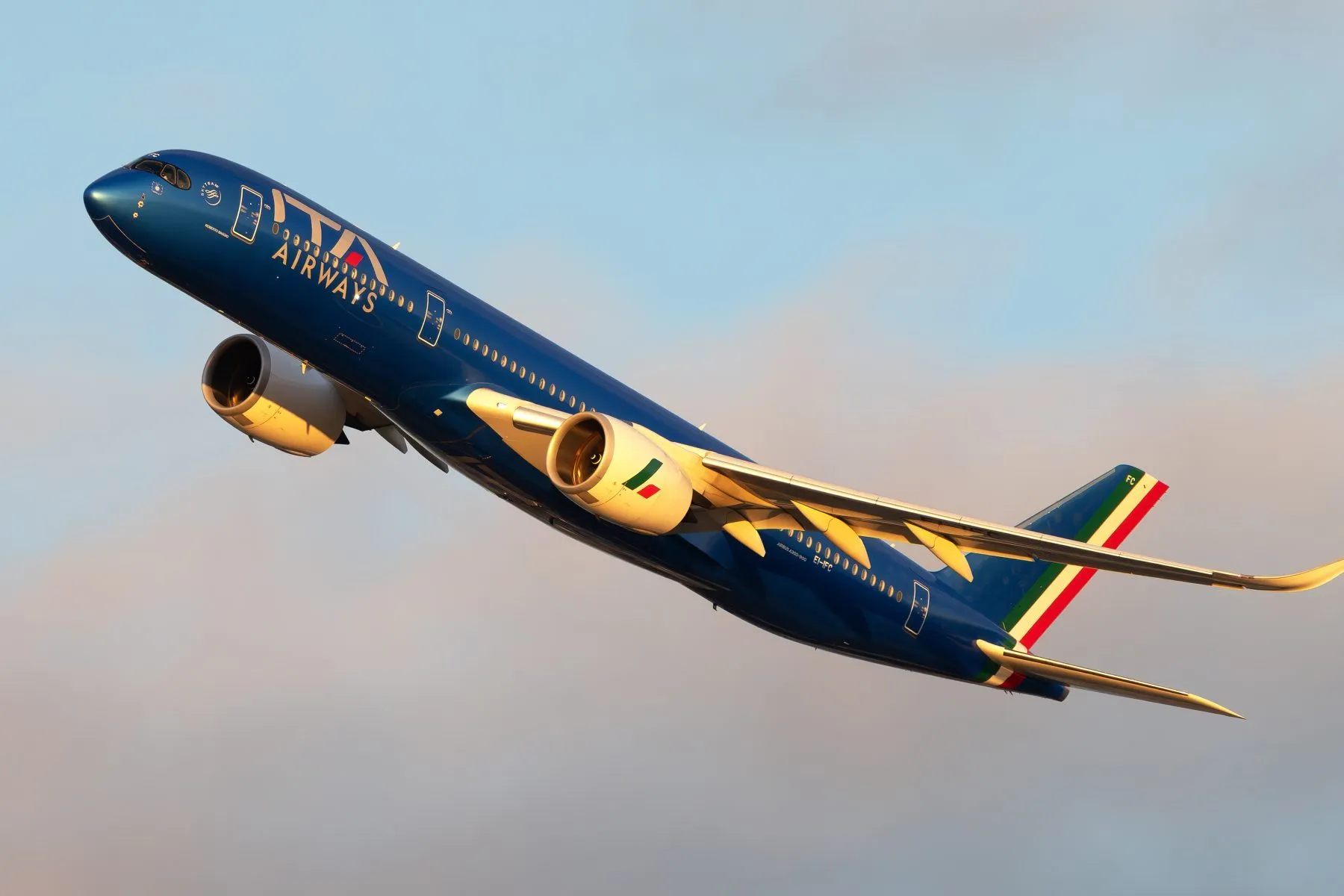Concur's New Government Travel System Runs Into Big Implementation Problems

Skift Take
In its latest earnings announcement, Concur referenced "continued strong progress" on deploying its electronic booking system for government travel as 10 federal government civilian agencies have signed up for the system, but the rollout has run into widespread problems at the U.S. Department of the Interior and other agencies.
Skift obtained a Department of Interior email to employees entitled "Update Regarding the New Travel System," which states that the General Services Administration has issued a Notice of Concern "to seek immediate action to address the issues we raised," including the stability of the system, responsiveness, and help desk wait times.
A Department of Interior spokesperson subsequently confirmed that the employee email Skift obtained is authentic, and spokespeople for the GSA, which administers the government travel program, and Concur confirmed that the GSA has indeed issued a Notice of Concern to Concur about problems with the implementation of its government travel solution.
The email, dated April 9, was written by Pam Haze, Interior Department deputy assistant secretary, budget finance, performance and acquisition.
"First, we are working closely with the General Services Administration (GSA) and the company Concur to focus their efforts on stabilizing the system," the email states. "This means that they are introducing only the most urgent system changes that will fix problems you are experiencing and hold off other changes until they have a better process in place to ensure that changes they introduce do not cause additional problems."
The GSA and Interior Department "are helping to pursue contractual remedies in order to make sure that the company delivers on their commitments, and the Interior Department prepared a Cure Notice, that was under review, to address the issues and obtain "compensation for the costs we have incurred as a result of problems with the system," the email states.
Separately, a spokesperson for the GSA confirmed to Skift that it indeed issued a Notice of Concern to Concur to resolve the problems.
"As the managing agency for the ETS2 (E-Gov Travel Service 2) master contract, GSA issued a Notice of Concern to Concur regarding their ETS2 service," the spokesperson said. "Concur was responsive, all major concerns and elements were addressed. Concur's Corrective Action Plan activity is being closely monitored by GSA."
Interestingly, the GSA spokesperson's statement doesn't relate simply to the problems at the Interior Department, but seems to relate more broadly to Concur's ETS2 service.
The email outlines how the Interior Department and GSA conducted a meeting or meetings with the Concur president and vice president that "produced significant commitments for help and improvement," the email states.
In response to the woes at the Department of Interior, and possibly other agencies, as well, Concur shifted 17 employees from its commercial operations to federal government operations, and has pledged to assign quality assurance staff to pre-test releases, and to provide more help desk support, according to the email.
As the GSA Notice of Concern and information Skift uncovered suggests, Concur's government travel deployment problems aren't believed to pertain merely to the Interior Department. The U.S. Department of Agriculture, for one, is believed to have delayed its engagement with Concur over concerns about the Concur government travel system, and a source says the woes are being felt at multiple agencies.
"Our relationships with the GSA and the individual agencies remain strong and we are confident in our ETS2 efforts," A Concur spokesperson says. "As a first-time Government contractor, the GSA provides us with continual feedback on our performance and Concur takes any concerns they raise very seriously by dedicating ourselves to addressing them, as we would with any customer."
"We are working diligently to ensure that agencies across the Government will get a travel and expense system that not only satisfies contract requirements, but ultimately saves time, money, increases accountability and transparency, is easy to use and a delight to the Government traveler," the spokesperson added.
In 2012, in a controversial decision, Concur won a 15-year E-Gov Travel System 2 contract valued at up to $1.4 billion to provide its Concur Government Edition travel management system to all civilian federal government agencies. The system is geared to integrate electronic bookings by employees, including 72,000 at the Interior Department alone, as well as authorisations and vouchers.
The decision was controversial because the GSA awarded the contract to a single provider, Concur, which had little or no government travel experience.
CWTSato Travel, EDS and Northrup Grumman had provided their E-Gov Travel Service to the federal government and some 90 federal agencies since 2003, but the system was considered highly flawed. Many agencies still use it pending a transition to the next-generation ETS2 systems.
In September 2013, after a legal battle, the GSA reneged and awarded a portion of the ETS2 contract to CWTSato Travel, one of the original providers, meaning Concur would have to share the spoils, and compete for the agency contracts.
In Concur's fiscal second quarter earnings call on April 29, Concur CEO Steve Singh struck an upbeat tone about its rollout of its government travel solution to federal agencies, with no hints to investors about any problems.
"However, what we do take away from it as very, very positive is that these deployments are slightly ahead of our original expectations, which means that as we get into fiscal ‘15, it just gives us greater visibility into the revenue stream we’ll see from ETS2 that will contribute in the ‘15," Singh said.
Concur's contracts with federal agencies, including the Interior Department and Veterans Administration, for example, aren't expected to have a material impact on Concur's financials for several years, but assuredly the problems with the rollout at the Interior Department aren't helping Concur as it competes with CWTSato Travel for government agency contracts.
Unlike CTWSato Travel, which is a travel management company, Concur is a tech company, not a travel agency, and has to work with partner travel agencies for fulfilment, and it has numerous travel agency partners.
When the GSA initially awarded Concur the entire ETS2 contract for civilian agencies, there was a lot of criticism because Concur had virtually no experience in the complex and, some would say, arcane world of government travel with its voucher and city-pair systems, for example.
If Concur thought it would easily be able to adapt its systems, which were geared for corporate travel, into the government arena, it apparently is proving to be more complicated than initially envisioned.
Following is the Department of Interior employee email, and below that is a Concur presentation about its travel management system for government travel.
[gview file="https://skift.com/wp-content/uploads/2014/05/DOI-email.pdf"]
[gview file="https://skift.com/wp-content/uploads/2014/05/Concur-Government-Expense-ETS2-Information.ppt"]





